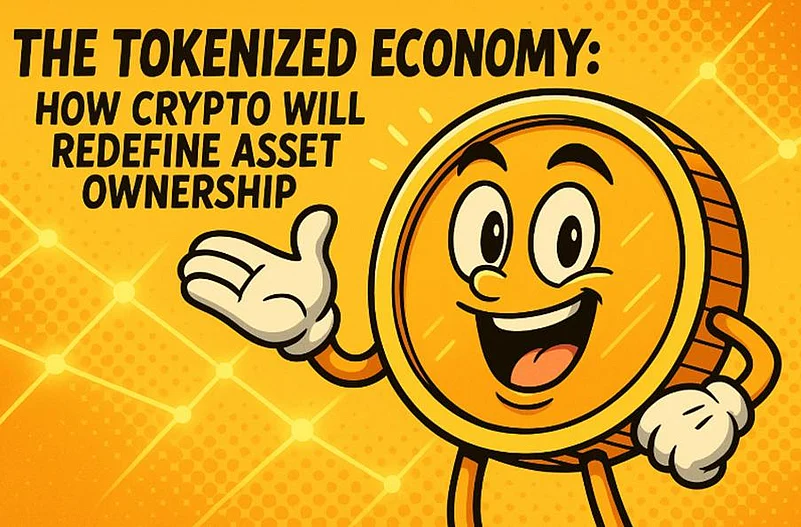In the transforming digital age, ownership is experiencing a quiet revolution. Historically, owning something—property, gold, art, or a stake in a company—entailed grappling with sheets of paper, intermediaries, and regimes of regulation. With blockchain technology and cryptocurrencies, however, a new way of owning is emerging: tokenization. This technology has the potential to transform not only the way we store assets, but also who stores them, how value flows, and how wealth is allocated across the world.
What Is Tokenization?
Essentially, tokenization is the act of taking ownership rights over physical assets and expressing them in the form of tokens on a blockchain. They are an interest in an asset and can be transferred, stored, or sold as effortlessly as any other form of digital money. The nice thing about this model is that it establishes fractional ownership, lowers the barriers to entry, and creates an open and more inclusive economy.
Think of possessing a fraction of a Parisian luxury flat or a portion of a unique painting without having to be a millionaire. Tokenization divides valuable assets into tradable, shareable pieces that make them available to regular people and not only institutional investors or rich folks.
Why It Matters
The conventional financial system has always benefited those with access to capital, lawyers, and upscale markets. The tokenized economy turns this on its head by making the system of ownership more democratized. Blockchain technology makes all things visible and immutable in transactions, eliminating the necessity for middlemen such as banks or brokers and minimizing the cost of each transaction.
For instance, property sales that could take weeks now can be accomplished in a few minutes through smart contracts—automatic contracts written into a blockchain. Not only does this save time, but fraud or human mistakes are also cut down.
Access and Liquidity
Traditional assets such as property or paintings are typically illiquid, i.e., cannot be sold rapidly at a loss of value. Tokenization reverses this by allowing one to purchase and sell small fractions of such assets at any moment, similar to purchasing and selling shares. This generates dynamic new markets and raises participation from investors who hitherto made such investments inaccessible.
This liquidity is not just good for buyers. Holders of assets can unlock the value in their holdings without necessarily selling the entire asset. For instance, a property owner can tokenize 30% of the asset and sell the tokens to raise funds while still maintaining control over the other 70%.
Real-World Implications
The potential of a tokenized economy extends far beyond the individual investor. Governments may utilize it to fund land registry systems with unbreakable blockchain ledgers. Artists and creators can tokenize their creations, ensuring them royalties every time a work is resold. Startups can raise money by issuing equity tokens, giving a transparent and efficient method of fundraising compared to the traditional approach.
Even supply chains can gain. A unit of value can serve as a vehicle of ownership and goods origin, allowing improved tracking and authenticity checking. In industries such as pharmaceuticals or agriculture, this can dramatically limit counterfeiting and improve safety and quality.
Challenges to Consider
Regulatory risk, particularly in nations where legislation is racing to catch up with blockchain technology, can be a challenge. There are also technological risks like cyberattacks and the necessity for strong digital infrastructure.
Aside from this, education to the public is also vital. For the success of a tokenized economy, one must be aware of the nature of digital ownership, how they can keep their assets secure, and what they are entitled to if they possess tokens.
A Future of Decentralized Ownership
The tokenized economy is more than a technological movement—it's a trend toward decentralized ownership that places more power into the hands of the people. It provides transparency, eliminates reliance on antiquated financial gatekeepers, and brings new channels to the world to participate in markets heretofore out of reach to advantaged groups.
With every step forward in technology and increasingly crystallized regulatory landscapes, tokenization can reconfigure the very fabric of asset ownership. From purchasing real estate to investing in art or funding a business, the future does not necessarily have to be in tangible paper contracts but in safe, programmable digital tokens—the birth of an open and efficient global economy.














